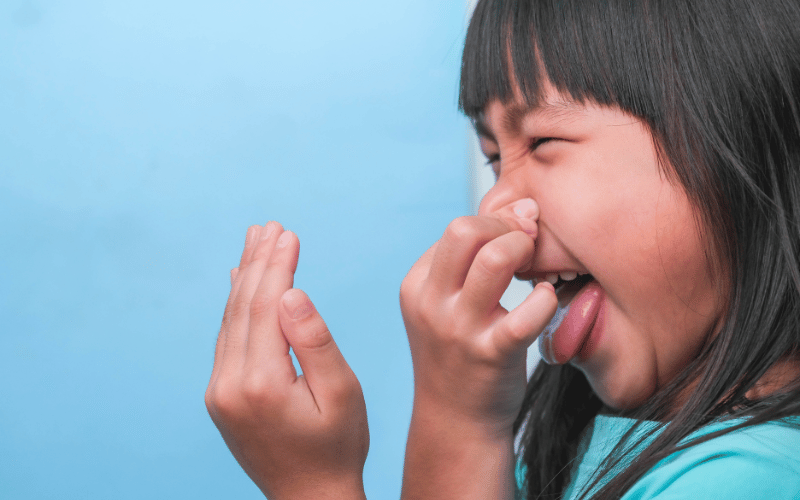Fact 8: Mouth Breathing and Children’s Behavior

The behaviors and habits formed during childhood can set the stage for lifelong patterns. And mouth breathing is no exception. Beyond the immediate physiological effects, mouth breathing can impact a child’s behavior, cognition, and overall demeanor.
Firstly, the quality of sleep is compromised in children who consistently breathe through their mouths. Sleep is the golden chain that ties health and our bodies together, and for a child, it’s pivotal for growth, restoration, and cognitive development. Mouth breathing can lead to snoring and, in more severe cases, obstructive sleep apnea. These disruptions not only reduce the overall sleep quality but also the crucial REM sleep, where most cognitive processing and dreaming occur.
With compromised sleep, children may exhibit symptoms akin to Attention Deficit Hyperactivity Disorder (ADHD). They might become irritable, display difficulty in concentrating, or become hyperactive. Such children are sometimes mistakenly labeled or medicated for ADHD, when, in reality, addressing their breathing could alleviate these symptoms.(8)